SROI analysis for the Consortium COOB in Tuscany
Title Social impact assessment through the calculation of the SROI index of the job placement activities of the Consortium COOB
Duration April 2020 – December 2020
Location Tuscany
Partner LabCom
Funding Consorzio COOB
Context
The COOB Consortium is a network of 35 social enterprises made up of cooperatives type B which aims to foster the opportunity of job inclusion and placement for disadvantaged people.
COOB is a network of territorial realities that work daily for the well-being of the communities in which they develop actions, create value by offering professional services, opportunities for growth and training to people who live with forms of disadvantage and who, thanks to work, can regain dignity and a social role.
To assess the social performance of its activities, the Consortium decided to measure the SROI index of its cooperatives. The SROI index, is a useful too that can be interpreted as an efficiency index: it measures the ability of an organization to transform the resources invested into shares capable of generating a social return.
General Objective
Measuring the SROI index, Social Return on Investment, allows companies and/or organizations to measure the impact of their investments in terms of social performance. The SROI methodology, together with the Theory of Change, allows to build a story of social change generated through a qualitative and quantitative path.
Our contribution
To calculate the SROI index of the Consortium, the Social Economy Unit developed a specific framework for measuring the social impact that could be easily employed for the different realities of the Consortium. This framework has been elaborated to respect and enhance the specificities of each cooperative.
The SROI methodology for measuring companies social performance is based on the identification of an organisation’s activities through the application of an input-output-impact model and the extensive involvement of key stakeholders. During the stakeholder engagement process, the Social Economy Unit employed the results of the process initiated by the university spin-off Labcom, which conducted an analysis of the psychological profile of work placement outcomes. Subsequently, co-operatives and disadvantaged workers were asked to answer a questionnaire to measure the effects and investigate the actual allocation of work activities. Based on these assessments, the net social value generated by each cooperative was calculated, as well as the value of the individual SROI indices for the year 2019.
Read more on our Social Economy Unit
Related Projects
-

Training and capacity building on structuring the ESG strategy of Tuscan Cooperative Credit Banks
-

SROI Analysis for the association UGI -Unione Genitori Italiani contro il tumore dei bambini
-
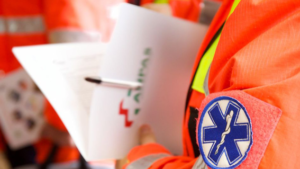
BIlancio Sociale per la Pubblica Assistenza Società Riunite di Pisa
-
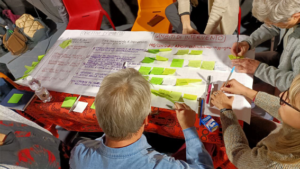
Consulenza organizzativa per la revisione strategica dell’organizzazione CISV
-

Analisi organizzativa e supporto all’elaborazione di un piano strategico per UGI
-

Consulenza organizzativa su Cultura Cooperativa per Gruppo Banca Etica
-
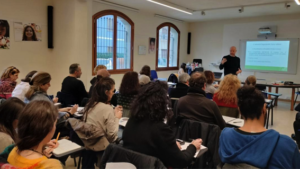
Consulenza organizzativa e percorsi partecipativi per Fondazione Caritas
-

Supporting an enabling social enterprise ecosystem in Senegal
-
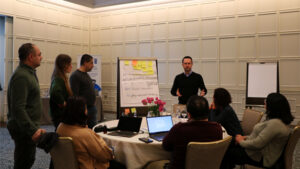
Developing enabling social enterprise ecosystem in Azerbaijan
-
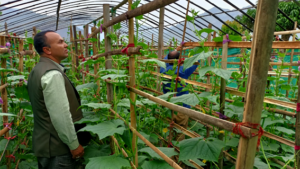
Development of the spices and seeds value chains to foster youth and women empowerment in Nepal
-
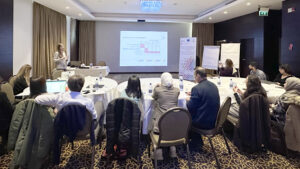
MedRISSE, social innovation and Social and Solidarity Economy policies in the Mediterranean
-

SIRCLES, fostering inclusive employment opportunities in the Circular Economy sector
-

Peace Steps in Palestine : mid-term evaluation & Support to the creation of an Ethical Charter
-
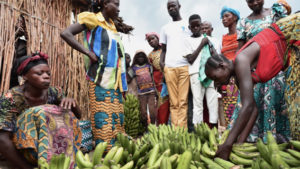
Creating social business to develop the agro-industrial supply chain in Senegal
-

Mid-term Evaluation of the project to foster enabling ecosystems for social enterprises in the MENA Region
-

SROI analysis for the Consortium COOB in Tuscany
-
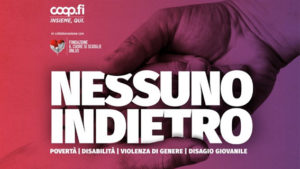
Social Impact Assessment of Nessuno Indietro, the project that supports Third Sector bodies amid pandemic in Tuscany
-

Social Report for the year 2018 of the Fondazione Opera Santa Rita
-

Social Impact Assessment of children’s protection programmes in Kyrgyzstan
-

SROI Analysis, Albergo Etico social performance
-

Promoting inclusive business and social entrepreneurship in Palestine
-

Promoting social business at the local level: Pistoia Social Business City
-

SROI analysis of Ronald McDonald Houses
-
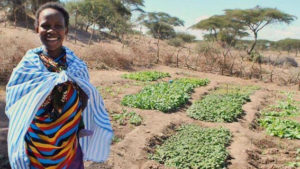
Market analysis of social businesses in Mozambique and Tanzania
-
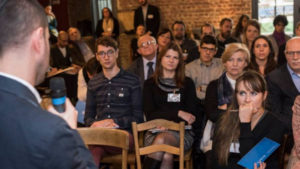
The European research project to develop social entrepreneurship and social enterprises